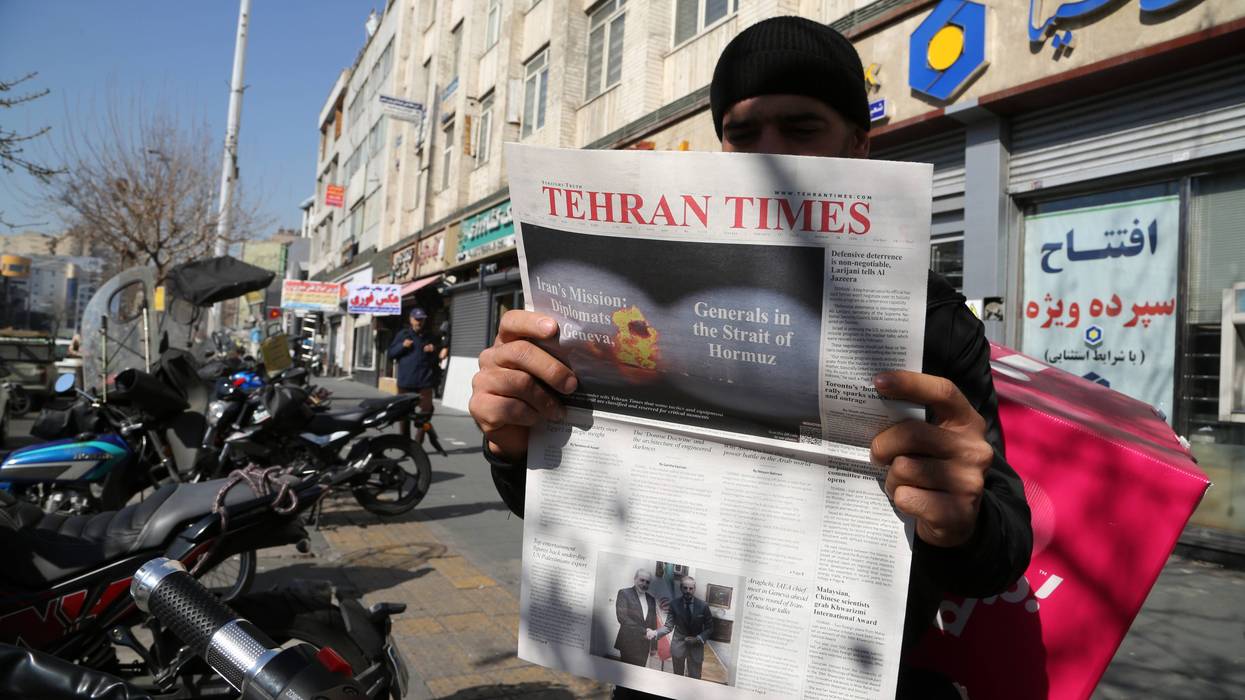CPC was responding to a Wednesday Washington Post article examining how "Israel has moved aggressively in recent days to deepen its control over the occupied West Bank, unilaterally adopting policies that analysts say represent a major shift toward annexation."
Earlier this week, the Cabinet of right-wing Israeli Prime Minister Benjamin Netanyahu approved measures making it easier for Jewish settlers to purchase land stolen from Palestinians in the West Bank, including East Jerusalem, by resuming land registration procedures in Area C, the approximately 60% of the West Bank under full Israeli military and civil control.
Responding to the move, United Nations Relief and Works Agency for Palestine Refugees in the Near East (UNRWA) Commissioner-General Philippe Lazzarini said Tuesday that "accelerating the dispossession of Palestinians and expanding Israeli settlements will do nothing to bring long-needed stability and peace to the region."
More than 80 UN member states have condemned Israel's plan to steal more Palestinian land.
“Such decisions are contrary to Israel’s obligations under international law and must be immediately reversed," Palestinian Ambassador to the UN Riyad Mansour said on behalf of the countries. "We underline in this regard our strong opposition to any form of annexation."
“We reiterate our rejection of all measures aimed at altering the demographic composition, character, and status of the Palestinian territory occupied since 1967, including East Jerusalem,” he added.
Netanyahu—who once displayed a map of the "New Middle East" in which there is no Palestine—last year promised that "there will be no Palestinian state."
Israeli Finance Minister Bezalel Smotrich, National Security Minister Itamar Ben-Gvir, and other officials have also vowed to annex either some or all of the West Bank.
Netanyahu is wanted by the International Criminal Court in The Hague for alleged crimes against humanity committed during the ongoing Gaza genocide. The ICC has also reportedly weighed arrest warrants for Ben-Gvir and Smotrich over the far-right officials' plans to expand illegal settler colonies in the West Bank and annex the occupied territory.
Smotrich—who denies the existence of Palestinian people—said Sunday that "we are continuing the revolution of settlement and strengthening our hold across all parts of our land."
While Trump has publicly stated that he "will not allow Israel to annex the West Bank," he has done nothing to stop Netanyahu's government from proceeding with de facto annexation. To the contrary, Trump reportedly assented to recent Israeli land grabs.
Smotrich called Trump's reelection a "great opportunity" to normalize Israel's occupation and eventual annexation of Palestine.
Some prominent US officials, including House Speaker Mike Johnson (R-La.), have erroneously claimed that the West Bank is part of Israel.
Israel conquered and occupied the West Bank including East Jerusalem along with Gaza during the Six-Day War in 1967, subsequently ethnically cleansing around 300,000 Palestinians. Many of these forcibly displaced people were survivors of the Nakba, the terror and ethnic cleansing campaign that saw more than 750,000 Palestinians flee or be forcibly expelled from Palestine during the foundation of the modern state of Israel in 1948.
Since 1967, Israel has steadily seized more and more Palestinian land in the West Bank while building and expanding colonies there. Settlement population has increased exponentially from around 1,500 colonists in 1970 to roughly 140,000 at the time of the Oslo Accords in 1993—under which Israel agreed to halt new settlement activity—to around 770,000 today.
Both Israel's occupation of Palestine and the colonization of Palestinian lands by Jewish apartheid settlers are illegal under international law. Article 49 of the Fourth Geneva Convention states that an “occupying power shall not deport or transfer parts of its own civilian population into the territory it occupies.”
In July 2024, the International Court of Justice—where Israel is currently facing a genocide case related to the Gaza war—found the occupation of Palestine to be an illegal form of apartheid that must be ended as soon as possible. The ICJ also ruled that Israeli settler colonization of the West Bank amounts to annexation, also a crime under international law.
As the world’s attention focused on Gaza following the Hamas-led attack of October 7, 2023, Israeli soldiers and settlers have killed at least 1,053 Palestinians—at least 230 of them children—in the West Bank, according to UNRWA. Some settler pogroms have compared to the ethnic cleansing during the Nakba.
The Office of the UN High Commissioner for Human Rights published a report Wednesday warning that "intensified attacks, the methodical destruction of entire neighborhoods, and the denial of humanitarian assistance appeared to aim at a permanent demographic shift."
"This, together with forcible transfers, which appear to aim at a permanent displacement, raise concerns over ethnic cleansing in Gaza and the West Bank," the report states.
Although not a CPC member, Congresswoman Betty McCollum (D-Minn.) last week reintroduced HR 7545, which would prohibit Israel from using US taxpayer funds for the seizure or destruction of Palestinian property or any support for annexing Palestinian land.
Earlier this month, a group of Democratic US senators urged Trump ahead of his February 11 meeting with Netanyahu to "clearly reinforce the opposition of the US government to Israeli government actions that set the conditions for irreversible annexation.”




